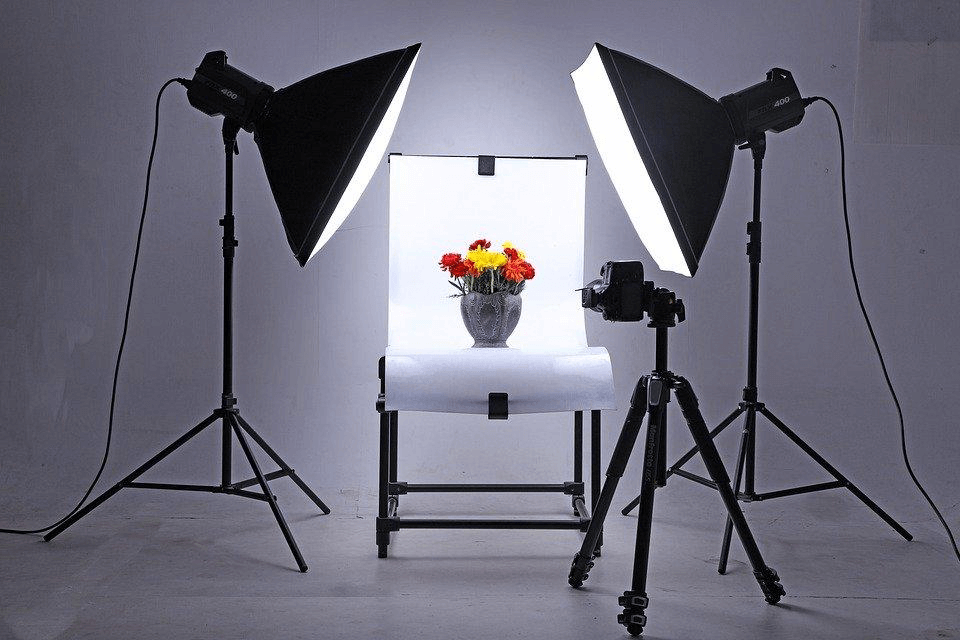Best Practices for E-Commerce Product Photography That Boost Conversions
Professional product photography stands as the cornerstone of successful online sales. Clear, high-quality images build immediate trust with potential buyers and significantly reduce return rates by setting accurate product expectations. Studies show that 83% of online shoppers consider product images the most influential factor in their purchasing decisions. Whether you’re launching a new online shop or improving an existing store, mastering product photography fundamentals will dramatically boost your conversion rates and overall sales performance.

Essential Photography Setup
Creating professional product photos doesn’t require expensive equipment. A basic setup provides excellent results for most online stores. The right tools help maintain consistency across your product catalogue.
Must-have equipment:
- Digital camera or recent smartphone
- Sturdy tripod for sharp images
- White backdrop paper or fabric
- Two portable LED lights with stands
- Light diffusion panels
- Reflector cards for shadow control
- Product display stands
- Cleaning supplies for products
Setting up your space:
- Choose a quiet, dust-free area
- Create a dedicated photo station
- Ensure proper ventilation
- Maintain organised storage
- Keep backup equipment handy
Mastering Product Shots
The right techniques ensure your products look appealing and professional. Focus on these core practices for better results. Consistent application of these methods helps build a professional-looking catalogue.
Technical basics:
- Use natural lighting when possible
- Keep aperture between f/8 and f/11
- Maintain ISO under 400
- Shoot in RAW format
- Enable manual focus
- Set correct white balance
- Use burst mode for detailed shots
- Check focus between shots
Composition guidelines:
- Centre products against clean backgrounds
- Capture multiple angles
- Show size comparisons
- Include detail shots
- Maintain consistent style
- Follow the rule of thirds
- Create visual hierarchy
- Use leading lines effectively
Image Optimisation for Web
Proper image preparation helps your website load faster while maintaining quality. Speed affects both conversions and search rankings. Regular maintenance of image standards improves overall site performance.
Optimisation steps:
- Save web-ready versions
- Compress file sizes
- Create multiple sizes
- Use descriptive filenames
- Add relevant alt text
- Implement lazy loading
- Enable browser caching
- Monitor loading speeds
Lifestyle Photography
Show products in realistic settings to help customers envision ownership. Lifestyle shots often drive higher conversion rates through emotional connection and practical demonstration.
Key elements:
- Natural environments
- Genuine usage scenarios
- Relatable contexts
- Clear product focus
- Professional models
- Authentic interactions
- Seasonal relevance
- Target audience representation
Setting guidelines:
- Choose appropriate locations
- Plan shot sequences
- Brief models properly
- Maintain brand consistency
- Consider cultural factors
Product Variations
Help customers understand all available options through clear visual presentation. Reduce confusion and increase buyer confidence through comprehensive variation photography.
Essential shots:
- Colour options
- Size differences
- Material choices
- Package contents
- Scale references
- Texture details
- Pattern variations
- Customisation options
Documentation requirements:
- Consistent lighting
- Matching angles
- Clear labelling
- Size indicators
- Colour accuracy
Common Mistakes to Avoid
Learning from common errors helps improve your product photography quickly. Watch out for these frequent issues that can harm conversion rates.
Photography pitfalls:
- Inconsistent lighting
- Blurry images
- Distracting backgrounds
- Poor colour accuracy
- Missing detail shots
- Incorrect scale representation
- Unrealistic editing
- Outdated imagery
Quality control measures:
- Regular equipment checks
- Standard operating procedures
- Image review process
- Customer feedback monitoring
- Competitor analysis
Converting Browsers to Buyers
Strong product photography directly influences purchasing decisions. These proven techniques boost conversion rates through better visual communication.
Conversion boosters:
- Show multiple angles
- Include zoom capability
- Maintain consistency
- Display size references
- Feature lifestyle usage
- Highlight unique features
- Demonstrate product benefits
- Include comparison shots
Testing strategies:
- A/B test images
- Monitor analytics
- Track user behaviour
- Gather customer feedback
- Analyse heat maps
Taking Action
Start improving your product photography today with these practical steps for immediate implementation:
- Set up a basic photography station with essential equipment
- Create a comprehensive shot list for each product category
- Develop a consistent editing process for all images
- Test different angles and layouts with sample products
- Monitor conversion rates before and after improvements
- Establish quality control procedures
- Train team members on photography standards
- Regular review and update cycles
Success in e-commerce product photography combines technical skill with marketing awareness. Focus on clarity, consistency, and quality across all product images. Remember that every photo should help customers make informed buying decisions and feel confident in their purchases.
Investment in quality product photography pays significant dividends through increased sales and reduced returns. Start with these fundamentals and gradually expand your techniques as you master each element. Regular updates and maintaining high standards help build customer trust and boost your conversion rates. Keep testing different approaches to find what works best for your specific products and target audience, always measuring results to guide improvements.




